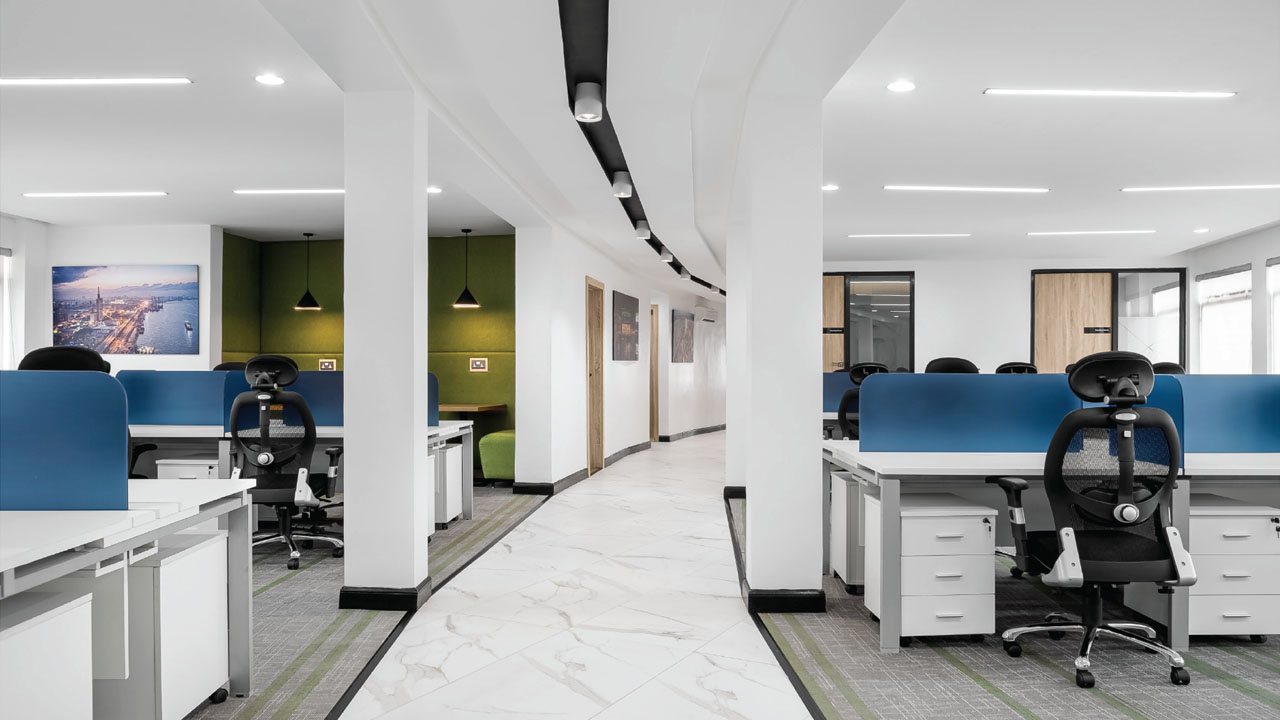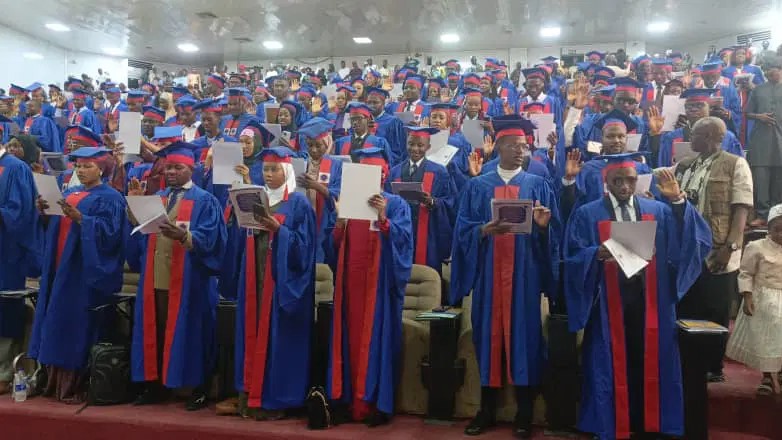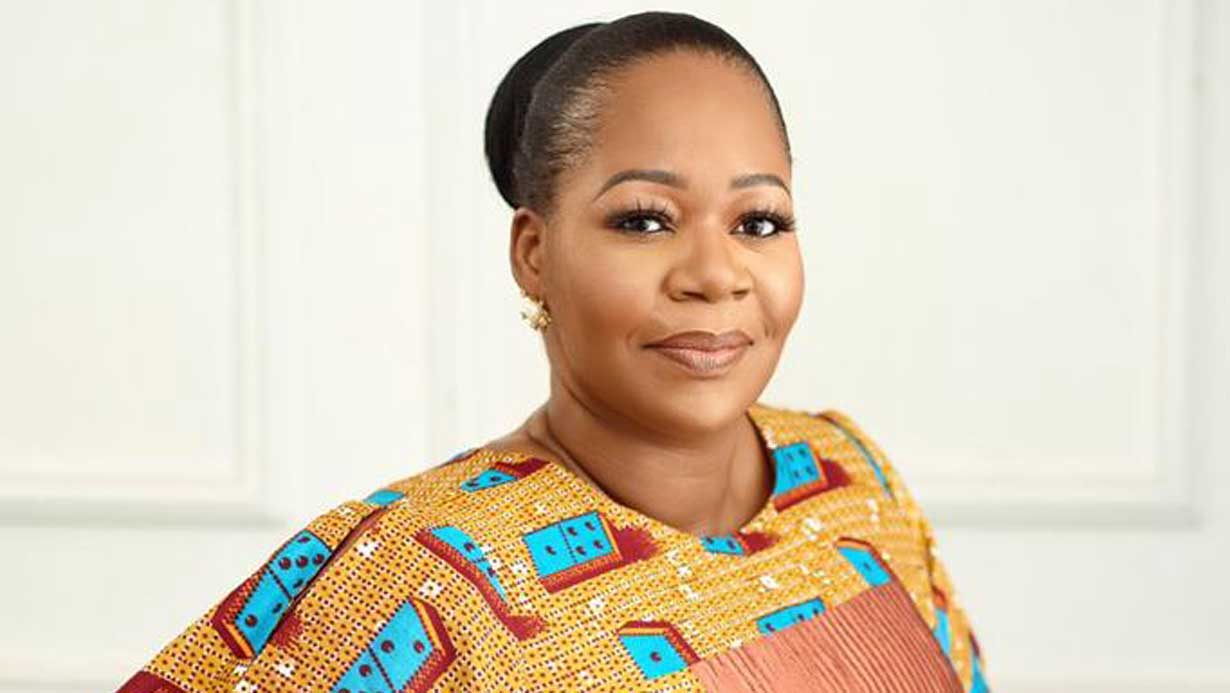
The design space in Nigeria is evolving to accommodate the effects of urbanization and globalization, with the rapid adoption of modern and sustainable infrastructure as the future of workplace productivity. Through economic and innovative use of spaces and materials, Micdee is one of few companies doing important work in this scene, going beyond architecture and design.
Founded in May 2017 by Michael Awonowo, architect and chief executive officer of the firm, Micdee is a design consultancy agency that creates unique experiences at the intersection of workplace productivity and effectiveness for a local and international clientele.
“Micdee started off as a personal dare, I had discovered how to communicate value during my time as an employee and I decided to test out my theory on clients,” Michael says. “Architects think like artists: it’s important for us to like what we do. If we’re able to convince clients that we can help them achieve their set goals, then we become valuable to them.”
Four years later, this personal dare is paying off as Micdee is setting industry standards in architect remuneration, while creating beautiful yet functional spaces that allow individuals and teams to work better. Located in the heart of Lagos, Nigeria, Micdee is changing the design game in Africa’s largest economy one commercial work space at a time.
“The biggest factor for us is our strategy sessions, which is one thing we do differently from competitors,” Michael continues. “We try to understand what the client wants and more importantly, what they do not want. At the end of the day, it’s easy to provide what they need because we listen and make them feel heard.”
Strategy as the starting point for design is a recurring theme which is drilled into Micdee’s brand philosophy. Tola Daini, the team’s lead designer, talks about the importance of strategy in understanding what the client needs and birthing work spaces that are products of deep thought.
“We listen to hear what the client is not saying and recognise the reasons behind key elements of their design choices. We design spaces that identify with their brand values. The more the client feels like we understand “why” the easier it is for them to trust us and what we’re trying to do,” he comments.
Micdee is one of few design consultancy agencies to employ the services of a creative director in a bid to ensure that the firm’s brand remains true to the master plan, while executing projects at the convergence of branding and design for a diverse clientele.
“We are young and doing unorthodox things to change how the Nigerian design space works,” says Kolawole Shomade, Micdee’s creative director for the last two years. “We focus on all the parts of design which occur before delivering the final product to the client and we take them through the entire process, step by step.”
In the last four years, Micdee has worked on a number of major projects which include designing work spaces for Piggyvest, the UAC company, SoftCom, Cafe One by Sterling Bank and the United Nations World Food Project – an audacious attempt at combining architectural interior design with event planning, in an impossible five-day timeline.
“The reason we were able to pull off the UNWFP was simply heavy collaboration, both in-house and with select contractors,” Tola says. “We had one weekend to come up with a design which would capture the essence of all the meetings we had with the clients prior to that time. We understood what the client wanted so we were able to attempt some bold, new and unconventional thinking.”
This concept of collaboration is another major value that guides the design process at Micdee. Ezekiel Bassey, a senior designer at the firm, explains that the collaborative process passes through all levels of the design team, from senior designers to the junior designers and all the way to the interns, who are expected to contribute hands-on work as part of their learning experience..
“The dynamic between us is fluid, it goes back and forth and it allows us to work freely with one another. I’ve realized that we all design according to our individual personalities, and we’ve found a way to make the different strengths and weaknesses of the team work and work well,” Bassey says.
Antonia Joseph, project manager of Micdee, likens her role in this collaborative process to that of the conductor of an orchestra: organizing the multiple moving parts while ensuring they remain in sync, overseeing the comfort and proper communication of the entire team and project fulfilment.
In her own words: “Hierarchy is not a big deal at Micdee, each project demands different things from different people so collaboration is the most logical thing to do since we’re trying to ensure user satisfaction.”
User satisfaction is the most important performance index for the team as they adopt a client-first approach in their relationships with Micdee’s customers. According to Kolawole: “Clients will always push back, so we strategize by starting with “why.” Once they are convinced that you know what you’re talking about it tends to reduce the level of expected pushback.“
“We don’t design for design’s sake, our aim is intricate, intentional and deliberate designs, while trying to understand what success means for the particular client,” Bassey adds. “We’re selling dreams, and that’s one thing that stands us apart from everyone else.”
As a constantly evolving team, Micdee is in the habit of obtaining interviews and feedback from both the artisans they hire for their projects, as well as from their clientele, all in a bid to perfect their craft and ensure that they deliver an all round exceptional product and service.
Concerning this feedback Micdee’s chief marketing officer, Alice Dako, says: “There are different elements to the final product we deliver: having conversations with clients gives us insight on how to improve and grow the business, while also informing the world that we’re really good at what we do. If the United Nations can trust us then it means we are of an international standard.”
On the future of the firm, Micheal explains that since the ultimate goal is their optimization of a people or team’s output, it makes the areas which they can branch into limitless, as long as this end goal is realized.
“Micdee is premium. I see us evolving into a strategy firm in the sense that in the next 5 – 10 years anytime anybody in Africa wants to optimize workplace efficiency, then we’ll be the name on their lips. All this goes beyond designing a building, beyond architecture. We’re focused on results, it’s not a pivot per say, just us looking to become specialists in our niche.”

![UAC Open Office-01[89161]](https://guardian.ng/cdn-cgi/image/format=auto,width=600,fit=contain,q=70/https://cdn.guardian.ng/wp-content/uploads/2021/09/UAC-Open-Office-0189161.jpg)




